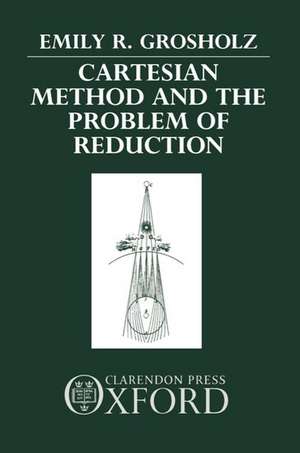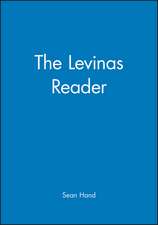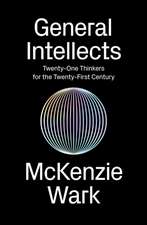Cartesian Method and the Problem of Reduction
Autor Emily R. Grosholzen Limba Engleză Hardback – 31 ian 1991
Preț: 741.53 lei
Preț vechi: 1127.64 lei
-34% Nou
Puncte Express: 1112
Preț estimativ în valută:
141.90€ • 151.73$ • 118.31£
141.90€ • 151.73$ • 118.31£
Carte tipărită la comandă
Livrare economică 07-14 aprilie
Preluare comenzi: 021 569.72.76
Specificații
ISBN-13: 9780198242505
ISBN-10: 0198242506
Pagini: 170
Ilustrații: text-figures
Dimensiuni: 144 x 223 x 18 mm
Greutate: 0.35 kg
Ediția:New.
Editura: Clarendon Press
Colecția Clarendon Press
Locul publicării:Oxford, United Kingdom
ISBN-10: 0198242506
Pagini: 170
Ilustrații: text-figures
Dimensiuni: 144 x 223 x 18 mm
Greutate: 0.35 kg
Ediția:New.
Editura: Clarendon Press
Colecția Clarendon Press
Locul publicării:Oxford, United Kingdom
Cuprins
Introduction; Descartes's Geometry and Pappus' problem; Treatment of curves: notion of genre; Descartes's Principles: physical unities; Laws of motion; Historical context of Cartesian physics; Descartes's physiology; The Meditations re-examined; Bibliography; Index.
Recenzii
'a sophisticated work connected by a coherent perspective or specific thesis'Roger Ariew, Virginia Polytechnic Institute and State University, Mind, Vol. 101, No. 402, April 1992
'the fundamental thesis does capture something which is clearly at work in Descartes, and it has exactly the consequences for Descartes' work which the author explains'Desmond M. Clarke, University College, Cork, British Journal for the History of Science, 25
'the fundamental thesis does capture something which is clearly at work in Descartes, and it has exactly the consequences for Descartes' work which the author explains'Desmond M. Clarke, University College, Cork, British Journal for the History of Science, 25
















